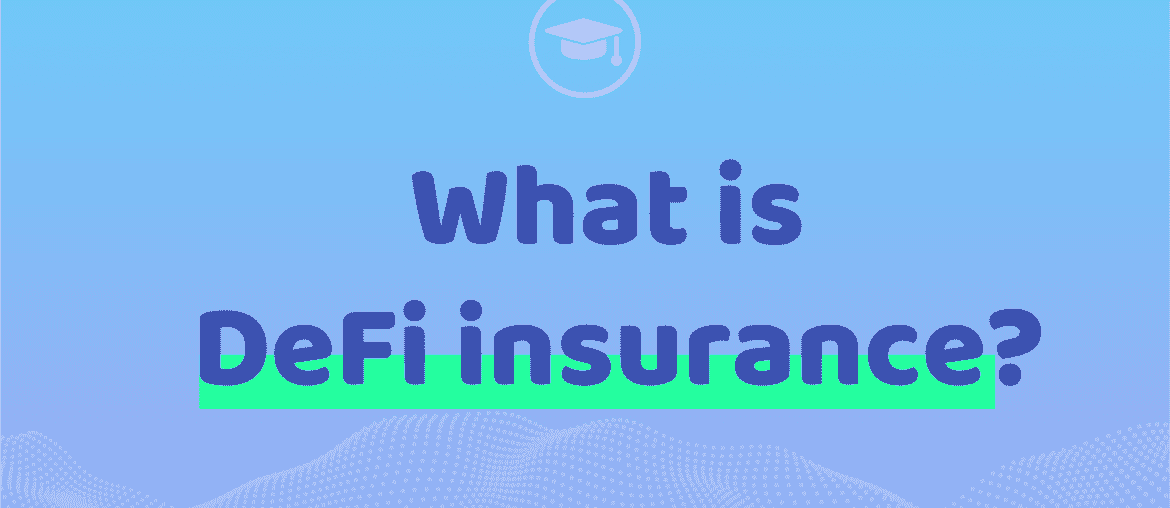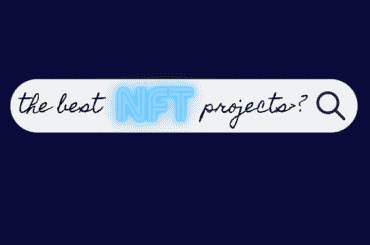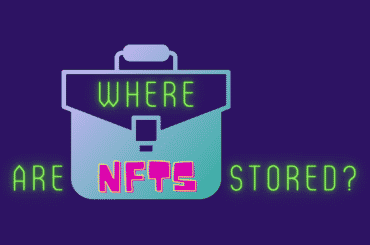In the simplest terms, DeFi is short for Decentralized Finance. It’s a catch-all term for various financial protocols and platforms that run on Ethereum. From lending and borrowing platforms to stablecoins and tokenized BTC, there’s a wide variety of DeFi applications available today and because they’re running on Ethereum, they’re accessible to anyone with an internet connection.
Decentralized finance is the future of financial transactions. This new technology eliminates intermediaries by allowing people, merchants, and businesses to conduct transactions with each other through emerging networks that use security protocols like encryption for data transmission safety; it also provides connectivity using software advancements such as blockchain-based smart contracts which allows users without centralized authority or oversight on their funds’ movement while still being able to access them at any time.
In the world of decentralized finance, insurance is one of the key mechanisms that help to reduce risk and protect users’ funds acting as a safety net for the DeFi ecosystem. With over $68 billion invested in decentralized finance protocols, hackers are constantly looking for ways to exploit, manipulate, and profit from new DeFi protocols so decentralized insurance is becoming increasingly important in the DeFi industry.
Table of Contents
How Does DeFi Insurance Work?
When you purchase DeFi coverage, you are protecting yourself or your business against losses caused by events in the DeFi industry. You would essentially find a provider & pay a premium for a certain amount of your capital to be covered over a specified timeframe.
Being that the insurance itself is decentralized, you wouldn’t just simply purchase from an individual or company but rather a decentralized pool of coverage providers. This risk-sharing pool is governed by its members where membership rights are represented by tokens.
To solve the problems associated with traditional insurance, such as high premiums and limited availability of coverage due to bottlenecks in processing claims, DeFi Insurance protocols will be set up using a DAO (Decentralized Autonomous Organization) structure. Within this particular organization, you hold your token which gives you governance rights allowing for participation during voting on accepting or denying any given risk claim that may arise within the networked community members’ activities.
This innovative idea could maximize staking rewards by solving risks left unaddressed through current products offered today.
Decentralized Insurance Applications
The future of DeFi seems to be safe after all!
Decentralized insurance is an innovative new way for investors and developers alike, who are looking at how they can protect themselves from cyber attacks or other developments in this space. With Representation Theory providing a model that could help prevent losses due to poor security practices on behalf of its clients’ funds -such as what happened following the DAO hack- these parties will now have access to multiple options of defense against malicious actors seeking entry into their accounts with ease while also being able to provide peace-of-mind.
Crypto Wallet Insurance
Protecting your crypto wallet is a hot topic in the DeFi industry. With most of these wallets being exchanges or providers of crypto, it only makes sense that there would be an interest from those who want to secure their investments- especially when you consider how much money can potentially disappear during disaster situations such as hacking attacks on private keys which has led to many users losing millions within seconds.
Collateral Protection for Crypto-Backed Loans
In the world of finance, crypto-backed loans are the future. Borrowers use digital assets as collateral for their loans to protect themselves from risk.
In a typical case of a crypto-backed loan, if the collateral provided by the borrower is destroyed or stolen, then the loan is paid off by the insurance policy. A conglomerate has been established that safeguards and secures collateralized crypto-backed loans, a definite plus for decentralized insurance.
Smart Contract Cover
The Smart Contract Cover offers a new way to protect yourself by ensuring your funds are protected in case anything happens with the designated smart contract address. The insurance covers losses due to hacking or any other manipulating action on this specific piece of code, which means you can invest more confidently knowing there will be a relief if something does go wrong!
Why Buy DeFi Insurance Coverage
Insurance has long served as society’s safety net, but it is currently controlled and regulated by large corporations. Decentralized insurance protocols will bring power back to the people so that they can act in their best interest instead of profit margins.
In the future, we’ll likely continue to see an increase in DeFi companies.
The industry has already produced several successful blockchain-based ventures with a total value of $255 billion trapped inside a decentralized insurance protocol.
As institutional capital flows into DeFi and the risk of hacking increases, it becomes necessary that more investors have this coverage to guard their investment against potential losses caused by unforeseen circumstances outside one’s control.
With flexible liquid options available, there are packages tailored to fit all insurance claims.
Choosing The Right DeFi Insurance Provider
There are a lot of different types of decentralized insurance platforms out there. Some provide coverage with more transparency, while others allow them to earn some lucrative rewards and take part in decision-making.
Decentralization means that there is no single point of failure, which makes these systems more robust in the event something goes wrong with an individual’s computer or phone; they can still access their assets through other nodes on the network if needed (for instance when two peers lose connectivity). Centralization also offers some advantages such as increased transparency due to open-source code available anytime anyone wants it–and this might be important given recent scandals involving proprietary software from major brands whose flaws were improperly exploited by hackers.
DeFi coverage is like traditional coverage from an insurance company, but with added benefits. You can get a free quote and find out more about how it works. Some providers protect against smart contract risk or DAO hacks; others offer multi-sig wallet issues as well if needed – all at no cost to you.
Coverage from decentralized companies typically comes in two choices; premium versus pay as you go options where they charge higher rates during periods when there isn’t much demand for their services; this will lead to lower costs overall.
Payouts
When DeFi users request payment, they send the designated claim to an assessor who then follows protocol and validates it. If approved by all parties involved in this process – which could include members of DAO or multiple signatures from key holders on behalf of claimants themselves-the smart contract will issue funds directly into their account as well any other interested third party identifying themselves through proper paperwork filed beforehand.
Are Providers Themselves Insured?
Underwriting is an important part of any insurance world. It’s the process where a company takes on risk and charges premiums to be reimbursed in case something bad happens as well as showing how much they value their customers’ assets by providing them with affordable rates.
In this new DeFi insurance industry, companies partner up not only with one another but also collaborate with underwriters who have years of experience from traditional insurers to give both parties access to unique strengths: The expertise gained over decades helps to improve knowledge about certain risks while large capital pools allow low-cost coverage
If you break down the entire system, the main players in a DeFi insurance ecosystem are:
- Underwriters provide capital (staking) to the pool of the covered protocol.
- Claims assessors and governance token holders are in charge of voting on claims and overall governance.
- Decentralized brokerages leverage proven underwriters to offer permissionless, streamed coverage and algorithmic staking management for capital providers.
- Users and protocols who buy coverage may claim when incidents occur.
Regulations
As part of the self-regulation-oriented ethos in this industry, there are currently no regulatory bodies overseeing DeFi. This is unlike traditional finance which falls under federal banking regulators like The Federal Deposit Insurance Corp (FDIC). However, code will dictate how different insurance protocols operate and may even be embedded into smart contracts themselves–code becomes law here!
Benefits of Using DeFi Insurance
Decentralized insurance provides a level of security not found in traditional systems. It offers the peace of mind that comes with knowing your finances are protected from unforeseen events like natural disasters, cyberattacks, and other hazards thanks to its decentralized nature which makes it difficult (but not impossible) for anyone else besides you to access these files without approval or permission.
If you are a participant in the DeFi market, here are a few reasons you will want to consider DeFi insurance:
-Transparency and immutability
The Defi insurance protocol is an automatic system that sets claims aside for inspection by smart contracts. The terms of these agreements can’t be changed once they’ve been agreed to, making them completely objective and fair in their appraisal decisions without any room left open for manipulation from either side – insured or insurer.
-Rapid compensation process
The Defi insurance paying-out procedure has the upper hand over traditional insurance because of its smart contract automation. Decisions on validity and quantifying redemptions on an insurance claim are based on algorithms so that finalization cases will be much quicker without any biases or subjectivity involved in deciding who gets what share.
-Protects against exchange hacks
For the most part, Defi is considered safe due to its lack of intermediaries. However, there still exist certain risks that you should be aware of when joining an ecosystem with DeFi assets such as hacks or thefts from digital wallets; exploits within smart contracts which can result in lost funds for accounts wherever they may fall under.
-Protects against losses from weekly-coded smart contract
It is important to remain on guard for vulnerabilities in the smart contracts that your DeFi transactions depend upon. Even though today’s technology has become more advanced, it still isn’t perfect and there may be holes or glitches which can allow hackers access to funds owed by insurance approaches when they’re not protected adequately.
A Few DeFi Insurance Providers
Bridge Mutual
Bridge Mutual is a decentralized coverage platform that allows users to buy or sell coverage for crypto assets and protocols. You can protect your assets against hacks, exploits, stablecoins losing their stability, and more. You can also provide coverage liquidity to gain yield as an underwriter.
Bright Union
Bright Union is a DeFi insurance aggregator. They aggregate covers from various markets and allow you to find the best option. You can directly buy coverage from within their app.
Etherisc
Etherisc is a protocol to collectively build insurance products. Common infrastructure, product templates, and insurance license-as-a-service form the basis of Etherisc, which allows anyone to create their insurance products. They currently have a flight delay insurance product live.
InsurAce
InsurAce is a decentralized insurance protocol, providing DeFi insurance services. InsurAce has a live app where you can buy various covers ranging from smart contract failures to securing investment risks and anything in between.
Insure DeFi
Insure DeFi allows users to ensure their crypto portfolio. They offer insurance against scammers, stolen funds, and devaluation. You need to hold SURE tokens to take out insurance. You can file a claim, upon which Insure DeFi’s support team takes 3-4 business days to investigate what happened. After this, a vote from the inSure DAO community will happen.
Itrust.finance
iTrust.finance is a DAO that tries to do three things: increase cover capacity for DeFi insurance protocols, maximize user’s staking rewards, and bring simplicity to the staking process through an easy-to-use interface. Their first partnership is with Nexus Mutual, for which they try to achieve these three things.
Nexus Mutual
Nexus Mutual is a decentralized insurance platform that uses the Ethereum blockchain to create a risk-sharing pool in the form of a so-called ‘mutual’. It allows anyone to become a member and purchase cover. By becoming a member, each participant in the mutual becomes a part-owner of the mutual, with membership rights represented by NXM tokens. Nexus Mutual currently provides a Yield Token Cover (against yield-bearing token de-pegging), a Protocol Cover (against hacks on a protocol), and a Custody Cover (against halted withdrawals on centralized exchanges). Because of the legal set-up of Nexus Mutual, a KYC procedure is required to participate.
Nsure Network
Nsure places itself as a platform for users to trade insurance risks. It’s based on the operation model of Lloyd’s the London. On Nsure, users are allowed to outsource risk, but also to become risk-takers, capital providers, governance actors, and auditors of the system. Nsure covers smart contract failures of DeFi protocols.
Solace
Solace is a decentralized coverage protocol that allows DeFi liquidity providers and market makers to hedge their risks in the event of smart contract exploits. Solace focuses on three major points: automated claims processing, intelligent risk assessment, and high capital efficiency.
Steady State
Steady State is a DeFi insurance protocol protecting users and securing protocols through coverage of risks. Their system uses smart contract procedures to ensure automatic claim processes. Steady State also keeps a Risk Analysis Database (RAD), which they use to remove bias and increase efficiency.
UNION
UNION is an insurance platform that combines bundled protection and a liquid secondary market. DeFi participants manage their multi-layer risks across smart contracts and protocols in one scalable system. UNION allows anyone to buy and trade tailored protection for composable risks such as Layer-1, smart contract, and transaction completion risk. UNION imagines a system where each trade, portfolio, or strategy can be tokenized and protected by the community, for the community.
Unslashed
Unslashed is a decentralized insurance protocol offering coverage for a wide range of products, markets, and protocols. Unslashed enables almost instant liquidity to insurance buyers and risk underwriters, as well as an unbiased claims process. By tokenizing coverage and using ‘money streaming’, Unslashed offers flexibility: the insured pay as they go and can instantly stop the policy at any time.
In Conclusion
In the future, we can expect even more innovative applications for this unique form of coverage as Defi Insurance has proven itself invaluable so far by protecting against data theft and other online threats–but it’s just getting started!
With innovations coming out every day. Defi Insurance provides protection against risks associated with these technologies and can be a valuable tool in business or personal operations that rely on the use of devices like smartphones to conduct everyday tasks smoothly- but there are always potential complications when it comes time to find coverage so make sure you’re aware before buying!





